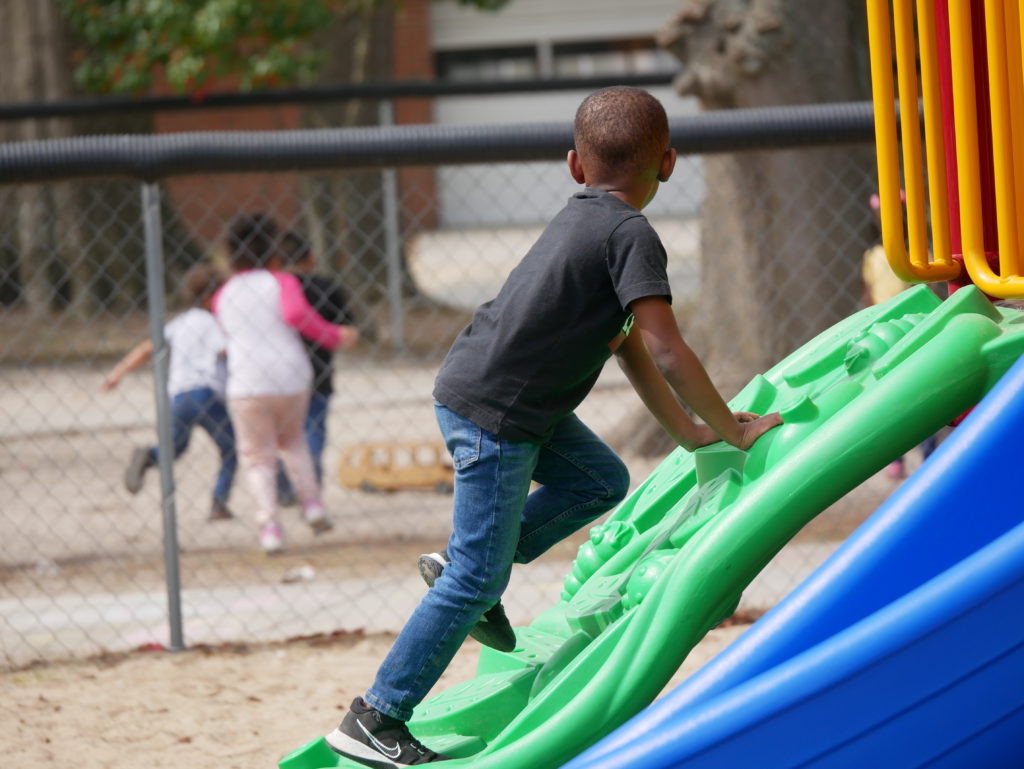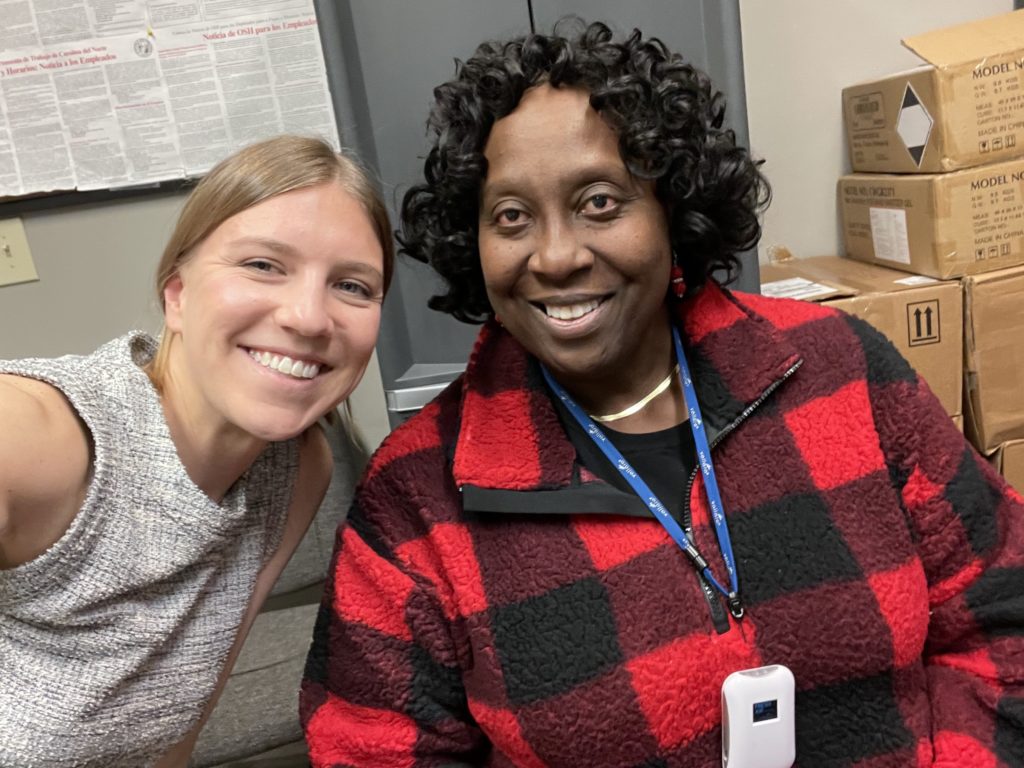'How far away from our ideal learning are we?'
Early Bird readers, hello again. Newcomers, welcome! If you were forwarded this email, you can sign up here to receive it every two weeks, and join our conversation on issues facing North Carolina’s young children and those who support them. If you’re already a subscriber, please help us reach more people by sharing this with your friends and co-workers interested in early childhood education.

In the last edition of Early Bird, I broke down what two researchers told me about quality pre-K. They said the question is not whether to provide pre-K, but how. Programs shouldn’t focus too heavily on academic skills emphasized in elementary school, they said. One researcher said more abstract skills, like language and executive functioning, are more likely to set children up for lasting success.
Once we agree on what matters in early education, how do we measure it? Pre-K classrooms sit in a larger context — of organizations like schools and child care centers, of an early childhood system with rules and policies, and of communities with ranging assets and needs. A new guide from Trust for Learning lays out a vision of how to holistically measure early learning quality, with equity — of access, experience, and opportunity — at the center.
A panel of early childhood measurement experts broke down the report Thursday. Here are some of their key considerations for educators and policymakers measuring success:
- Equity should be considered in what is measured, how the information is collected, and how it is used.
- Listening to parents and families is important when deciding how we define quality.
- Quality observers need to reflect the educators and classrooms they grade.
- Policies shouldn’t penalize programs and communities based on their lack of resources.
- Educators need information that is actionable.
Lydia Carlis, chief program and people officer at Acelero and Shine Early Learning, said working with parents, educators, and other stakeholders to answer these two questions is a great first step for leaders: “What would be different, better, enhanced for children, families, communities, if we achieved what we think is quality in our programs? … How far away from our ideal learning are we, and what are some steps that can take us to get there?”
Shout-outs from the road
Thanks to all who have reached out with thoughts on pre-K quality and story ideas in eastern North Carolina. EdNC is traveling to all 100 counties by the end of June to surface stories and better understand how news and information travel at the local level.
I spent a day in Greene County earlier in March visiting schools with Superintendent Patrick Miller, including the district’s pre-K Center. Shout out to Miller and pre-K director Yuvonka Davis for welcoming me back and showing me the new playground. Last week, I was in Onslow County at One Place, formerly known as Onslow County Partnership for Children, and Abundance of Love Learning Center, a child care center in Jacksonville.

Shout out to Molly McCabe, One Place’s communications manager, and Georgia Fonville, the center’s assistant director and longtime educator in Onslow and Pender County. After retiring as an elementary principal in 2010, Fonville told me ending up in early childhood was “God’s doing.” She said the center is turning away parents every day because of a lack of staffing. Many of the center’s staff are seniors.
“There’s a lot of learning that takes place in here,” she said. “People call it professional babysitting, or just babysitting. It’s more than that. We’re developing these children for life.”
Early Bird reads: What we’re writing
The quality of early learning matters. How should we measure it?
In North Carolina, licensed early care and education programs are measured through its Quality Rating Improvement System (QRIS), which awards up to five stars to programs. The state has one of the oldest quality rating systems, established in 1999, and in 2017 was spending more than any other state on its rating system— an annual $13 million, according to a study from the National Bureau of Economic Research.
Stars are awarded based on environmental factors, like safety and the quality of materials, and teachers’ education levels. The stars dictate how much money programs receive per child through the state’s subsidy program, as well as if the programs can host NC Pre-K, the state’s pre-K program for 4-year-olds.
School counselor and her dog help students grow through grief
When Martin Bumgarner, a first-year school counselor at Merry Oaks International Academy in Charlotte, found herself in need of resources and strategies for supporting a grieving kindergarten student, she turned to a trusted colleague who shared an online workbook called “Growing Through Grief.” This school year, Bumgarner paired the workbook with her certified therapy dog to develop a distinctive approach to counseling grieving students.
Katie Dukes, my EdNC early childhood colleague, is looking at how schools and communities are helping students navigate the grief of losing caregivers. Between January 2020 and mid-November 2021, between 3,600 and 5,000 children in North Carolina experienced the death of a caregiver due to COVID-19. Experts believe that number may now be as high as 5,800.
The Hunt Institute convenes legislators to talk education policy
The issue brief for the retreat explained, “the early childhood workforce has long been under-valued and under-paid.” Down from 41,000 educators prior to the pandemic, this workforce now consists of 37,000 professionals across 5,600 public and private child care and early education settings.
“It’s all about compensation, compensation, compensation,” said Marsha Basloe with Child Care Services Association, noting the need to balance the cost of living and the demands of the work. “It’s really very hard to take care of young children every day.”
Policymakers had the opportunity to follow up in small group conversations with early childhood providers, which ended with legislators offering them a standing ovation.
Your take, for goodness sake: EdNC perspectives
Perspective | Five savings and tax opportunities North Carolina families must know in 2022
“Many North Carolinians are still struggling with employment, wage gaps, and inflation, while interest rates are going back up,” writes Lindsay Saunders, the marketing and communications director at the North Carolina Early Childhood Foundation. “With tax season upon us, here are some tax credit and savings account strategies that can help North Carolina families.”
Saunders breaks down what parents and caregivers need to know about Children’s Savings Accounts, also known as NC 529 Plans, the NC ABLE program, the child care and dependent tax credit, the child tax credit, and the earned income tax credit.
In other early learning news: What I’m reading
Kids can learn more from guided play than from direct instruction, report finds - From The Hechinger Report
Can NC reduce the number of children in crisis who end up in limbo? Advocates hope a new plan can help. - From NC Health News
Trauma in infancy can have a lingering effect throughout life - From The Washington Post
Costly child care causing ‘vicious cycle’ for some parents - From WTOP News
New York poised to increase child care budget by billions, which could help women reenter the workforce - From The 19th News
Early Education Pays Off. A New Study Shows How - From Education Week
Research & Resources: Let's talk public will for child care
A new bipartisan poll from Hart Research and New Bridge Strategy on behalf of First Five Action Fund, a national advocacy organization working to advance early care and education at the federal level, has some interesting takeaways from likely voters in North Carolina.
- 84% say it is important for the budget reconciliation package to lower the cost of child care, compared to 94% who say the same for the cost of prescription drugs and 69% who say it’s important to address climate change.
- 78% say that early care and education programs are a good investment of public dollars. 67% of those who say federal spending is too high believe child care to be a good investment.
- 70% say they would be disappointed or upset with their member of Congress if he or she votes to approve legislation that does not include child care investments.
Sign up for Early Bird, our newsletter on all things early childhood.

